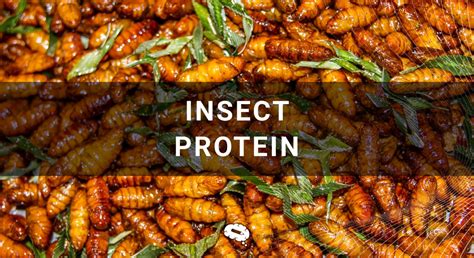Insect Protein VS Traditional Protein Sources: A Nutritional Showdown
In the quest for sustainable and nutritious food sources, insect protein has emerged as a promising contender. With growing global population and concerns about environmental impact, the potential benefits of incorporating insect protein into our diets are becoming increasingly apparent. Here’s a comprehensive exploration of the nutritional value of insect protein and its implications for human health.

Nutritional Composition: A Comparison
Compared to traditional protein sources such as meat, poultry, and dairy, insect protein holds its own in terms of nutritional value. It contains:
- High-Quality Protein: Insects are complete protein sources, meaning they provide all the essential amino acids that the human body cannot produce on its own.
- Essential Fatty Acids: Insects are a good source of omega-3 and omega-6 fatty acids, which play crucial roles in brain health and overall well-being.
- Vitamins and Minerals: Insects are rich in vitamins B12, iron, zinc, and calcium, which are often deficient in plant-based diets.
- Fiber: Insects contain dietary fiber, which supports gut health and promotes satiety.
Health Benefits of Insect Protein
Incorporating insect protein into the diet has been linked to several potential health benefits:
- Reduced Risk of Chronic Diseases: Studies have shown that insect protein may help reduce the risk of chronic diseases such as cardiovascular disease, type 2 diabetes, and obesity.
- Improved Immune Function: Insects contain antimicrobial peptides that have immune-boosting properties.
- Enhanced Cognitive Function: Insect protein may support cognitive function and improve memory.
- Weight Management: The high protein and fiber content of insects promotes satiety and fullness, which can aid in weight management.
Environmental Sustainability: A Major Advantage
Beyond its nutritional value, insect protein is also an environmentally sustainable option. Insects require significantly less land, water, and feed than traditional livestock, contributing to a reduction in greenhouse gas emissions and deforestation. By choosing insect protein over conventional meat sources, we can help mitigate the environmental impact of food production.
Challenges and Opportunities
While insect protein offers numerous benefits, there are still some challenges to overcome:
- Cultural Resistance: Entomological resistance, the reluctance to eat insects, remains a barrier in many cultures.
- Safety Regulations: Strict safety regulations are necessary to ensure the quality and safety of insect-based food products.
Despite these challenges, the potential of insect protein is undeniable. Researchers and food companies are exploring innovative ways to incorporate insects into our diets, including:
- Flour and Powders: Insect flour or powders can be easily added to baked goods, smoothies, and other food products.
- Cricket Bars and Energy Bites: Convenient snacks made with cricket powder provide a boost of protein and nutrients.
- Insect-Based Meat Alternatives: Plant-based meat alternatives are being developed that incorporate insect protein, offering meat-like texture and flavor.
Conclusion
Insect protein holds immense promise as a sustainable and nutritious food source. Its nutritional value, environmental benefits, and potential applications make it a compelling option for addressing the challenges of food security and promoting human health in the years to come. As we overcome cultural barriers and ensure safety standards, insect protein is poised to play a significant role in shaping the future of food.





















